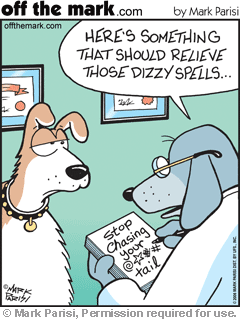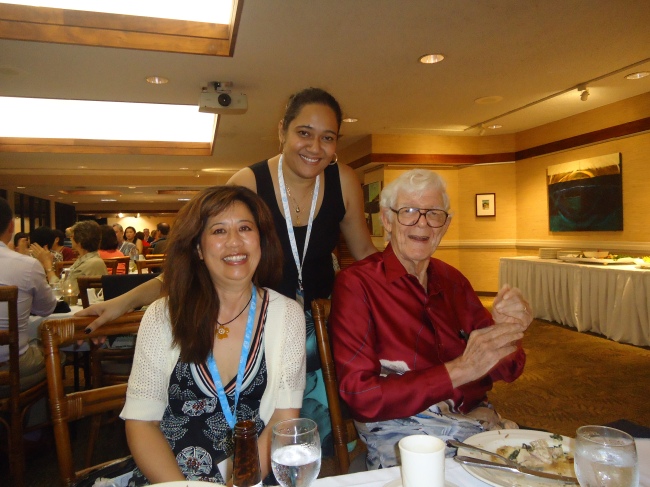We’ve all watched those old Greek mythology films and read the books featuring that once beautiful maiden cursed by a jealous goddess so that everyone who looked upon her face would be turned to stone. The iconic image of Medusa whether it is in an old Enid Blyton Children’s collection or in Hollywood blockbuster film is her hair which has been replaced by living venemous snakes. Reading for the PhD for me was like being ‘petrified’ (Thank you to JK Rowlings and the Harry Potter series) by Medusa and yes! I did feel overwhelmed as if I was turned to stone and found myself incapable of thinking or writing.
Some days the reading was great and everything I found excited me and on other days it was downhill all the way!!

Chasing my tail!
You’re probably wondering what the correlation is here. The reason I call it the Medusa effect is because of the nature of the literature search which lets face it – NEVER ENDS! Each great article or book would trigger a new line of thinking and possibilities, opening new lines of inquiry that led further into more articles, more books, more dissertations, more conversations and on and on I went along the path that leads to thesis nightmares. I did this reading around my topic until I felt like my topic was a tail that I was chasing to no avail.
My only saving grace I think was the fact that I love notebooks and I began keep a log of what I had read, bibliographical details and pointers. Next came the post-its which soon turned into labels or dividers and finally, came the day when I could no longer find anything on my desktop because of the 500 articles I had downloaded! So came the brain wave – create a personal library. Now I know that Professors tell us to keep a table and I did that for a while but to be honest, the personal e-library worked for me.

Reading for the literature review can feel this way – pointless, endless, tiring, exciting, self-motivating, self-flagellating and pretty damn exhausting.
When something just isn’t right! Symptoms of the Spiral: Am I chasing my own tail or is this the Medusa effect?
Chasing your tail defined: This is when you feel like you’re spiraling inwards (or: academic vertigo).
You know that feeling of a direct correlation between the length and/or scope of the reading list and the limitations of your brain’s processing power. It’s that “Am I too stupid to do this?” feeling that we all deny.
The Medusa effect: When you feel like you’re spiraling outwards in too many directions all at the same time (or: Overwhelmia).
Here new knowledge excites you and everything makes sense and is connected in a complexity theory-meets systems-theory way and even the space-time continuum connects to your social theory dissertation. Essentially your cognitive immune system has broken down and your powers of selection are depleted to the point that everything is relevant and interesting and connected. If unchecked, at this rate of indiscriminate reading, your thesis may well end up in a three volume thesis that could be titled an academic-trilogy or: the triptych that should not have happened.
This is not an exhaustive list!
- Each time you go online to find an article and end up downloading twenty!
- You read extensively on various theories and end up finding ways that they all add value to your thesis.
- You search your PC or USB for an article only to find that you have multiple copies of the same document saved under different file names.
- You regularly invent new systems to catalogue your notes so when it comes to writing the lit review – you need to review each system.
- You keep different note books and end up forgetting what’s where and when.
- You print indiscriminately and then can’t find anything in the growing mountain of ‘good things to read’.
- You borrow library books and don’t read them because you’re so caught up with online materials
- You download online materials and save them in various locations so you never really know where anything is.
- You religiously keep track of ‘great quotes’ I might use and then don’t remember where you’ve put them.
- You download articles and forget to note the URL.
- You find a great article in hard copy and a key page is missing but you have no idea where you got the paper from
- You have manila folders neatly (or otherwise) labelled (or labelled with post-its that fly off periodically).
- You think you have a system that works and someone cleans your table and you cant find anything.
- Your supervisor says “you should read…” and you say “I have that” but it is not where you thought it would be and it is not online.
- You have a great mental picture of the discourse and then you find one article that throws you and questions everything you thought you knew.
- You find an article that has the perfect title only to find that it is a physics paper and your thesis is a social sciences one or vice versa.
- You find the perfect article that is a chapter of a book and you have no idea what that book is because whoever uploaded it – did not bother with the details.
- You spend $200 on a great book only to find that only one chapter is of value to your topic.
- You read an recommended text a number of times and each time it makes less and less sense and with each read you feel more and more incompetent.
- You find an article that makes you think aha! So you label it ‘important’ but when you get back to it, you cannot remember why it was so important at the time because you didn’t make notes, or you can’t locate the note book or file containing your short notes
- You find a couple of great texts but they are all outdated .
- You find wonderful articles but none of them relate to the Pacific context.
- You find great books on the developed world and everything on the developing world seems to be about Africa or Asia.
- You find a handful of texts relating to the Pacific and they are (a) outdated; (b) are undated; or (c) are on everything but your topic; and, (d) seems to have been written by dead-white men or women interested in the primitivism of the Pacific savage.
You have collected so much information you have no idea where or how to start.
CREATING A SYSTEM THAT WORKS:
Ok so my system only took shape after all the symptoms 1 – 25 and others had manifested themselves sometimes simultaneously! And yes it does not help at all with some of the issues but it certainly helped me get through the clutter of my PC, Laptop, numerous USBs, manila folders, random printouts and the chaos of my own head!

Step 1: Creating folders for your filing system
This part is fairly easy to do. The trick is to save a copy on a CD and to customize the folder icon so that these are relatively easy to distinguish over time from everything else you’re working on.
1. Create a system of folders by theme or topic e.g. Art, Pacific Island Art, Educational Theories, Education in the Pacific, Pacific Thinkers
2. Create folders by country if that helps e.g. ED-Tonga, ED-Samoa, Ed-Fiji
3. Create folders by Theorist e.g. Foucault, Thaman, Tamasese, Hau’ofa, Dewey
4. Create category folders e.g. Full-Thesis docs, Lit-Rev docs, Research papers, UNESCO docs, Pacific Policy docs …
Step 2: Getting all your stuff into the folders
This part is more tricky especially if you are going from chaos (as I did) into a structured system. So this means going through each paper and saving them into the appropriate folder. Some tips for this include.
1. Saving Files by authors name and year e.g. Foucault 1980, Dewey 1918, Thaman 2004. Of course if the same author has two papers from the same year you would need to do Thaman 2004a, Thaman 2004b etc…
2. It also helps to create a working bibliographical listing in a word document that can be saved in each folder.
3. Another tip is to create a word document which lists online articles and sites with URLs and dates in each folder so that when you get back to it and can’t find that particular article at least you have the link
4. Once you have the folders up and you have sorted the chaos into some semblance of structure, downloading becomes that much easier. Once you decide to download, click save as type in authors name and year and save into the appropriate folder
Step 3: Sorting through the files
Once I had the files sorted I thought I was set and ready to go. How wrong I was!
Now that you have your files ready, you need to read what’s in them and conduct some form of discourse analysis.
1. Within each folder create a new sub-folder.
I labelled these ‘done’ because I would move articles into that folder once I had determined they were related but not directly relevant to my topic. I did not delete them in case I needed to revisit them at some later time. As I analysed each article and completed them – these also moved into the done folder which then helped me keep track of what I had read and analyzed and what was left to do.
2. The dreaded table.
Yes I admit it. After all that the table was still necessary. I used a rudimentary table as below for each thematic area I was interested in.
These tables were then saved as word documents within folders. And when I got lazy, I resorted to listing without the table:
Author, year – quote – page number
This only works when you have the filing system in which you can recheck the articles because they are in one location.
Well now that I have come to end of this post which initially began as Reading-for-the-lit-rev-life-raft or: how I overcame my academic neurosis! I had no idea there was so much to be said!
Peace out people.
~Alofas





